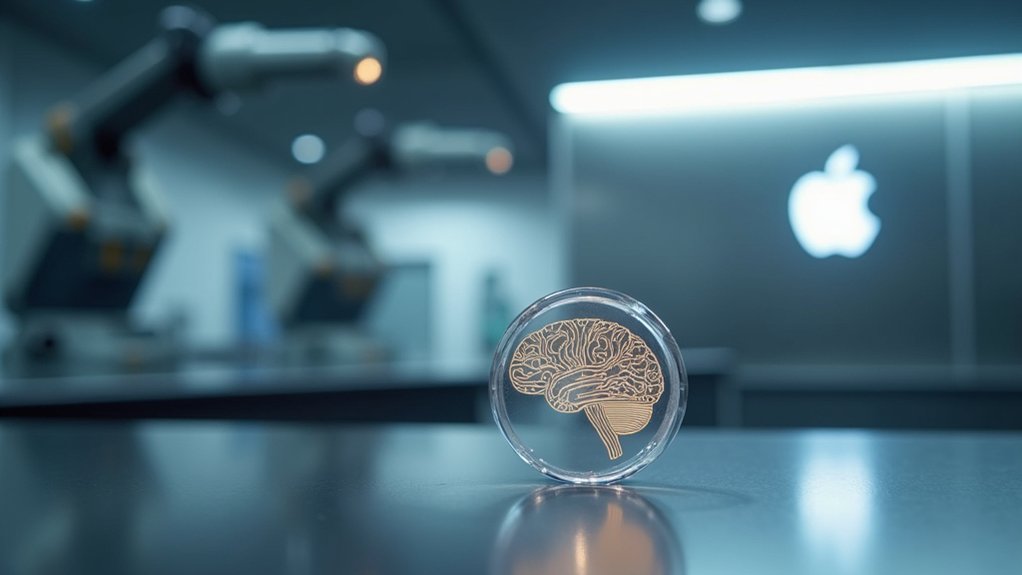Apple’s making a bold leap from phones to brains, partnering with Synchron to develop thought-controlled devices. Their tiny brain implant, placed near the motor cortex, lets users navigate iPhones and Vision Pro with just thoughts. Already showing promise in trials with ALS patients, it’s more than just sci-fi dreams. While iPhone sales wobble, Apple’s betting big on this neural tech, slated for developer release in 2025. The future of tech might just be all in your head.

The tech giant that brought you smartphones and smartwatches now wants direct access to your brain.
Apple’s latest venture into brain-computer interfaces (BCI) might seem like science fiction, but it’s very real.
The company is partnering with neurotechnology startup Synchron to develop systems that let users control iPhones and iPads with their thoughts.
No hands required.
Just pure, unadulterated brain power.
At the heart of this ambitious project is Synchron’s Stentrode, a tiny implant that sits in a vein near your brain’s motor cortex.
With its 16 electrodes, this little genius reads your neural signals and turns them into digital commands.
Think of it as Siri for your neurons.
The technology has already shown promise – an ALS patient successfully navigated through Vision Pro menus using nothing but thought.
One user named Mark Jackson experienced virtual Swiss Alps sensations during testing.
The system also enables seamless integration with ChatGPT and Alexa for enhanced user interaction.
Apple isn’t building this tech from scratch like some companies (looking at you, Neuralink).
Instead, they’re taking the sensible route of partnering with Synchron, which already has human trials under its belt.
The company plans to release a BCI standard to developers in late 2025, potentially transforming how people with motor impairments interact with technology.
This isn’t just about checking Instagram with your mind.
The initiative is part of Apple’s broader accessibility push, which includes new features like Accessibility Nutrition Labels in the App Store and enhanced braille support.
They’re positioning themselves as the accessibility-friendly tech giant, and brain implants are just the cherry on top.
The timing of this announcement – right before Global Accessibility Awareness Day – shows Apple’s knack for dramatic reveals.
But let’s be real: while the company talks about helping those with severe motor impairments, they’re also planting their flag in what could be the next frontier of human-computer interaction.
It’s classic Apple – waiting for others to stumble through the experimental phase, then swooping in with a polished, mainstream-ready solution.
Whether consumers are ready to let Apple into their heads is another question entirely.





